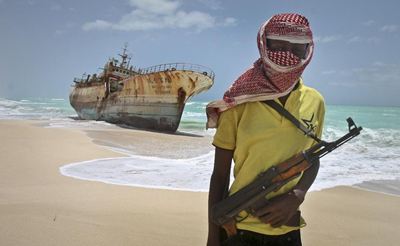
June 2013
Piracy in West Africa has been on the rise for several years, and has now eclipsed East African piracy in number of incidents this past year, according to the International Maritime Bureau.
The bureau counts 966 attacks in favor of pirates dominating the Gulf of Guinea and West Africa, and 851 for Somali pirates operating in the Indian Ocean and Gulf of Aden.
West Africa is a natural hotspot for pirates. Nigeria is the biggest oil producer in Africa, and the Niger River Delta in the Gulf of Guinea holds the majority of the country’s oil. Pirates commonly target offshore drilling facilities and tankers, selling the stolen black gold to pre-arranged buyers, that may include terrorists.
West African pirates have also not hesitated to follow the business model of their Eastern brethren. Two-hundred and six hostages were taken last year, with pirates killing five of them.
Unfortunately, this area has not been given the same attention as Somalia, and faces different challenges. For one, the Nigerian government has been ineffective, even problematic, in dealing with the problem.
Nigeria has yet to grant foreign navies the same right that they possess in Somali waters in the east, insisting that their country alone can handle the problem. However, not all of Nigeria’s ports are up to snuff security wise, and the fact remains that suspiciously little has been accomplished to fix that issue. Furthermore, they have tightened restrictions on private security on board ships entering their ports — greatly decreasing the number of companies allowed to conduct security duties on vessels. The prevalence of armed guards was a major factor in reducing attacks in the east.
Perhaps thanks to a bustling black market for oil and other products common to the Gulf of Guinea, stolen cargo is a lot easier to unload quickly. This makes pirates harder to track and free to strike again.
On the other side of things, the International Maritime Bureau reported that Somali piracy dropped 78% compared to 2011. This is thanks to better practices by ship captains, increasing the use of armed guards on board, and international cooperation– all things that are notably lacking on the west side of the continent. Until they become standard there, there may be no end in sight to piracy in the Gulf.